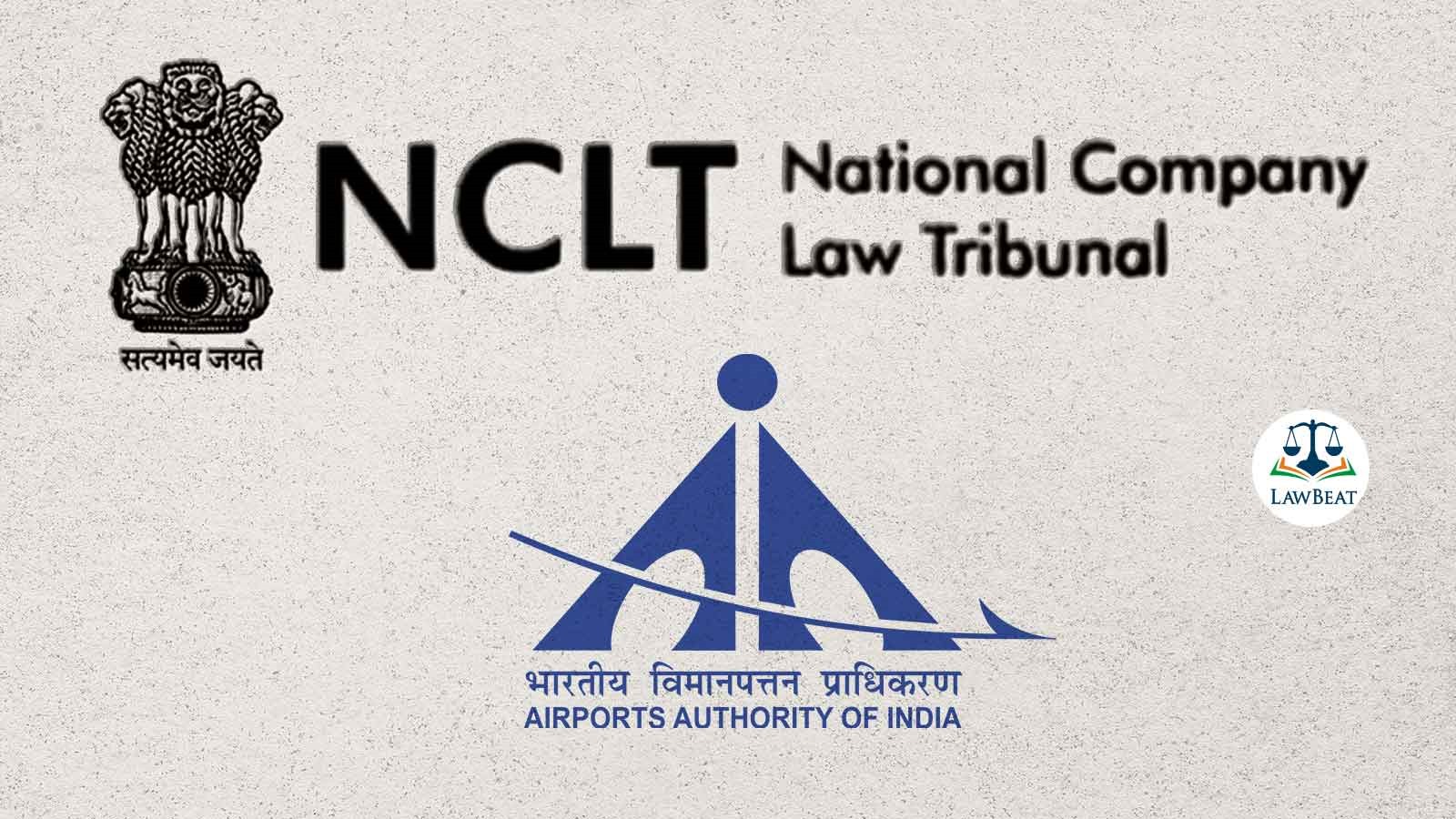Proceedings Under IBC 2016 Cannot Be Initiated Against Airport Authority of India: NCLT

The National Company Law Tribunal (NCLT) has recently observed that proceedings under the Insolvency and Bankruptcy Code 2016 cannot be initiated against the Airport Authority of India since it is a statutory body.
“It has rightly been pointed out by Respondent-1 in its counter reply that AAI (Respondent-2) being a statutory body created under Airport Authority of India Act, 1944, does not come under the definition of ‘corporate person’ under Section 3(7) of IBC. Therefore, proceedings under IBC could not have been initiated against them. Considering that AAI is the main party against whom the Application is directed, it suffers from a fatal flaw by impleading AAI as the defaulting Corporate Debtor,” the order reads.
The division bench of the NCLT in Hyderabad, consisting of Judicial Member Rajeev Bharadwaj and Technical Member Sanjay Puri, heard an application by an operational creditor seeking to initiate a Corporate Insolvency Resolution Process (CIRP) against the Airport Authority of India for the alleged default in discharging the debt.
The applicant was engaged in the business of electrical works, installation of electrical equipment, and the supply of equipment to its customers.
In 2018, the Airport Authority of India (Respondent 2) awarded the contract for electrical work at Lucknow Airport to NCC Limited (Respondent 1). M/s. Akash Electrotek Engineers Pvt Ltd (Applicant) was appointed as a subcontractor to NCC Limited.
A tripartite contract involving the Petitioner, Respondent-1, and Respondent-2 was entered into. According to the agreement, Respondent-1 was obligated to make payments to the Petitioner upon the satisfactory completion of different stages of work undertaken by the petitioner.
According to the Petitioner, it consistently fulfilled the assigned tasks and submitted multiple invoices at different stages of the project.
The petitioner alleged that the Respondents did not make timely payments for the billed amounts. Furthermore, the petitioner claims to have successfully completed 95% of the designated work, having submitted various invoices, including the "Pre-Final Bill" on 12.07.2021; yet, the Respondents did not settled the outstanding payment. The applicant claimed that AAI, being the main party, had the duty to pay the due amount.
The Petitioner had written to Respondent-2 on 25.09.2021, requesting the release of Rs 1.68 crores, which was due, and also sent a reminder on 08.10.2021. Respondent-2, on their part, sent an email on 12.10.2021 to Adani's, their successors in the project, who then responded to the Petitioner on 16.10.2021 with a copy marked to Respondent-1, stating that they had noted the complaint and forwarded the same to the concerned authorities for action.
After a Section 8 notice was sent, Respondent-1 contested the 'Pre-Bills' submitted by the Petitioner and, in turn, raised a claim against the Petitioner amounting to Rs 23,34,585. The Petitioner asserted that these disputes were raised by Respondent-1 for the first time and contended that the claim of Rs 23,34,585 was made on false and frivolous grounds.
The tribunal rejected the application, noting that it was rendered ambiguous since it did not specify who was responsible for the incurred debt.
“Another contention, about filing of single application against two different Corporate Debtors, being not maintainable, is also not without merit. Without specifying who actually is responsible for the debt incurred, the Application is rendered ambiguous and thus liable for rejection,” the order reads.
The tribunal also emphasized that the Insolvency and Bankruptcy Code (IBC) is not intended to be a tool for recovering disputed debts. Instead, its primary purpose is to facilitate the resolution of insolvency for corporate entities.
“Moreover, it is essential to acknowledge that the principal objective of the Insolvency and Bankruptcy Code (IBC) is not intended to be a tool for recovering disputed debts. Instead, its primary purpose is to facilitate the resolution of insolvency for corporate entities. Issues pertaining to non-payment for services rendered cannot be addressed through the initiation of insolvency proceedings under the IBC. In order to recover outstanding dues, if any, the Petitioner could have pursued legal recourse through the appropriate Civil Court, which possesses jurisdiction to determine the validity of the outstanding due,” the order reads.
Advocate Prem Chhetri appeared for the petitioner.
Senior Advocate Avinash Desai for the respondent.
Case title: Ms. Akash Electrotek Engineers Pvt Ltd vs Ms NCC Limited & Anr
